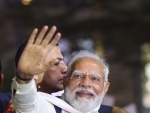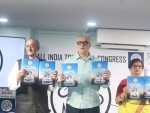Indo-US nuc deal will have detrimental impact in South Asia: Pak
"The operationalization of Indo-US nuclear deal for political and economic expediencies would have a detrimental impact on deterrence stability in South Asia. Pakistan reserves the right to safeguard its national security interests," Adviser to Prime Minister on National Security and Foreign Affairs Sartaj Aziz said in a statement.
The country said cooperative and collective actions by all member states are required to effectively tackle the global threat of terrorism.
"Pakistan is a leading partner of the international community in counter-terrorism. We also expect the same commitment from others. Pakistan is also the biggest victim of terrorism, including that sponsored and supported from abroad. Pakistan’s contribution and sacrifices in the fight against terrorism have been widely acknowledged. Pakistan rejects any insinuation or aspersion over its commitment to fight terrorism," said he.
Aziz said Pakistan reiterates its call on India to bring the planners and perpetrators of the February 2007 Samjhota Express terrorist attack to justice.
"Condemnation of terrorism in all its forms and manifestations should not be based on selectivity or double standards. Pakistan reiterates its call on India to bring the planners and perpetrators of the February 2007 Samjhota Express terrorist attack to justice, the Adviser said.
He said that Pakistan reserves its right to safeguard its national security interests.
"We have also noted the Joint Statement suggesting that India is ready for NSG membership and other export control regimes. Pakistan is opposed to yet another country-specific exemption from NSG rules to grant membership to India, as this would further compound the already fragile strategic stability environment in South Asia, would further undermine the credibility of NSG and weaken the nonproliferation regime," said he.
"Pakistan remains opposed to policies of selectivity and discrimination. Pakistan is not averse to civil nuclear cooperation and NSG membership for Non-NPT states provided it is based on the principles of nondiscrimination and objective nonproliferation criteria. Pakistan would continue to maintain its constructive engagement with NSG and other export control regimes to build its case for membership," he added.
Opposing the conferring of any special status to India at the UN security council, Aiziz said India violates the United Nations Security Council resolutions on matters of international peace and security, such as the Jammu & Kashmir dispute.
"Pakistan, along with a large majority of UN member states favours a comprehensive reform of the Security Council to make this principal organ of the United Nations more representative, democratic, effective, transparent and accountable. A country, in violation of United Nations Security Council resolutions on matters of international peace and security, such as the Jammu & Kashmir dispute, by no means qualifies for a special status in the Security Council," said the Adviser.
"Proposals to add new centers of privilege in the Security Council run counter to the collective objectives of Security Council reform; and have no rationale in this age of democracy, inclusiveness and accountability. Pakistan supports a reformed Security Council that corresponds to the positions and collective interests of all member states, not just a few," he added.
This comes after US President Barack Obama, who came to India on a three-day visit, and Indian Prime Minister Narendra Modi on Sunday reached an agreement on the civil nuclear issue, which was being held up over the stringent liability laws on the Indian side.
Support Our Journalism
We cannot do without you.. your contribution supports unbiased journalism
IBNS is not driven by any ism- not wokeism, not racism, not skewed secularism, not hyper right-wing or left liberal ideals, nor by any hardline religious beliefs or hyper nationalism. We want to serve you good old objective news, as they are. We do not judge or preach. We let people decide for themselves. We only try to present factual and well-sourced news.







